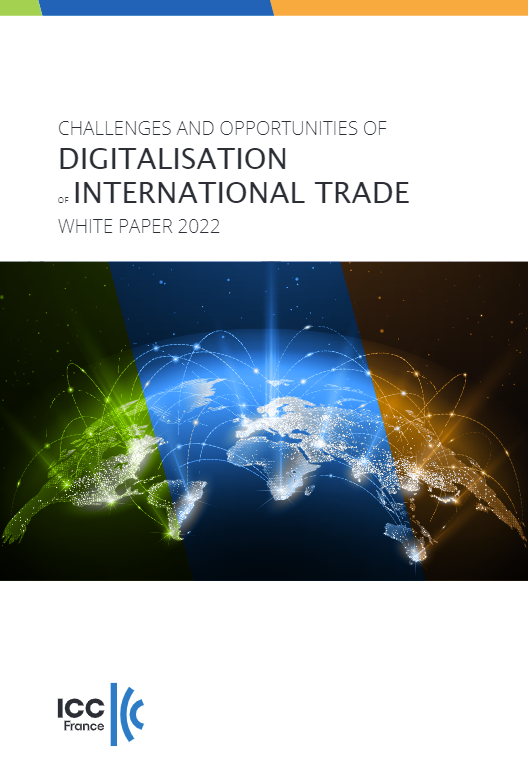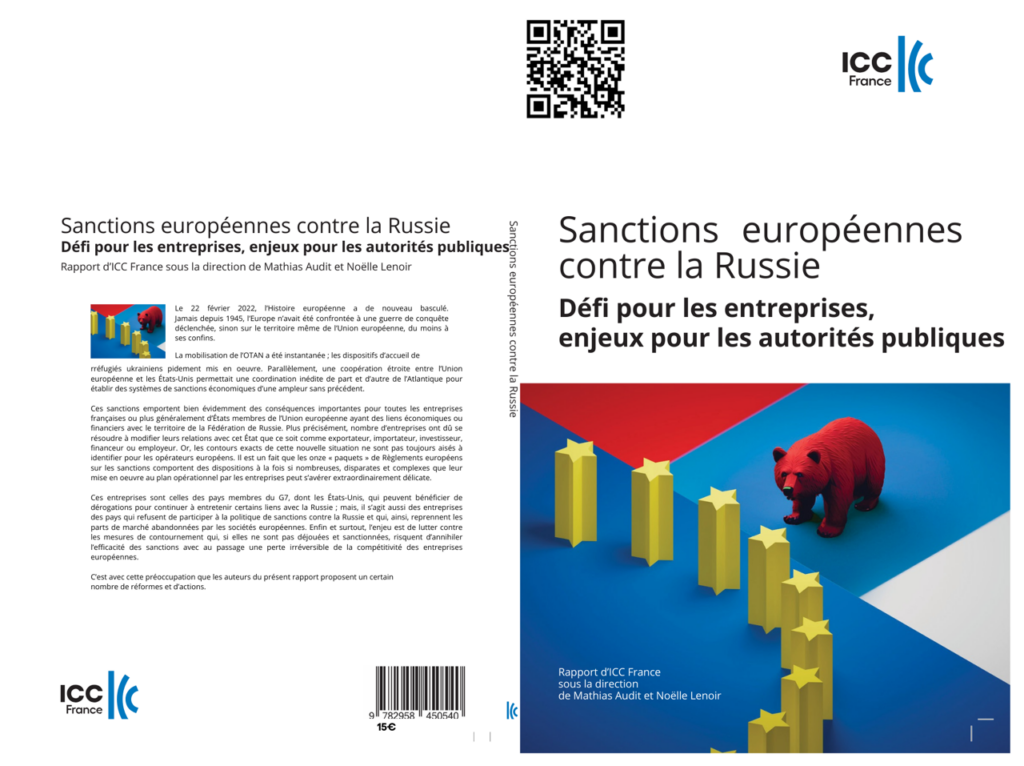International trade is essentially based on paper documents and manual operations to ensure the conformity of the documentary chain with the physical and financial flows of the goods involved in an international transaction. The pandemic has acted as an accelerator of digitalisation as it has forced private and public players in international trade to find new solutions to compensate for the disruption of transport and the practical impossibility of delivering a document related to transport, financing or customs.
This White Paper, produced by a transversal Task Force made up of representatives of various commissions of ICC France and fed by the feedback of numerous stakeholders, has three objectives:
- To draw up a report on the state of digitalisation in three areas: customs, trade finance and logistics, based on an emblematic document: the maritime bill of lading;
- Identify the main obstacles to be removed in order to accelerate the digital transformation of international trade; and
- To formulate recommendations which would help companies, professional federations, the French legislator as well as international organisations to accelerate and generalise, at a global level, a movement which has become indispensable, that of digitalisation of cross-border trade.
- The implementation of a management style conducive to digital transformation within organisations;
- Adaptation of French and EU law to existing international instruments (including transposition of the UNCITRAL Model Law on Transferable Electronic Documents); and
- The development of interoperability between digital norms and standards governing international trade.
-
The state of play in terms of digitalisation shows that much progress has been made in customs formalities, particularly in the European Union with an ambitious e-customs plan.On the other hand, despite the adoption of digital ICC rules and a flourishing of other initiatives at international level, trade finance operations are still largely paper-based. The international logistics sector, mainly based on maritime transport, is also hampered in its digitalisation efforts by the absence of a harmonised and secure legal framework that would recognise the equivalence between the physical and electronic version of transferable documents.
In order to accelerate the digitisation of international trade operations, it is necessary to remove several inherent obstacles. Thus, the authors of this White Paper recommend in particular:
-
These efforts must be led by all actors in international trade (private and public) and must be carried out at all levels: intra-company, national, regional and international.
Download it right below !





